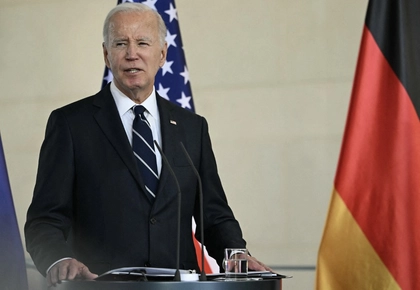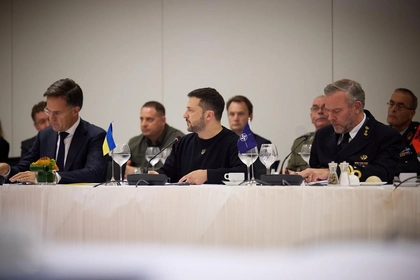In 2008, Ukraine asked NATO for a Membership Action Plan (MAP), but even then, the Kremlin turned on its Russian machine to prevent this, Volodymyr Ohryzko, Ukraine's Foreign Minister (2007-2009), said in an interview with European Pravda.
He said that there were other reasons why Ukraine did not receive the Membership Action Plan at the time.
JOIN US ON TELEGRAM
Follow our coverage of the war on the @Kyivpost_official.
“The second reason is much more global, deeper and stronger. The West continued to see Russia as its partner, turning a blind eye to all the horrors that were already happening in Russia, including the genocide of the Chechen people,” Ohryzko said.
“European partners forgave Russia for everything.”
According to the diplomat, Russia had three arguments to convince Western leaders. The first was that Putin told the Europeans that Ukraine did not exist and that it was an artificially separated territory.
“In short, he said the things that we heard him say openly later – after the invasion of Crimea, the start of a full-scale war, and so on. But even then, he was convincing the West that Ukraine was an artificial entity, that Ukrainians were Russian people, and so on,” Ohryzko said.
That said, a Kyiv Post source who was a member of Kyiv’s NATO Liaison Office at the time, said that Ukraine had actually begun actively working on the MAP during the period Ohryzko refers to.
The MAP is a complex and highly comprehensive process that helps establish the necessary standards required for membership in five key areas: Political and Economic, Defense and Military, Resourcing, Security and Legal.

Biden in Berlin Vows no Let-Up on Support for Ukraine
Work on the plan was quite advanced, but it became evident that Ukraine was unable to satisfy many of the standards expected despite the best efforts of those at the working level. The Kyiv Post source said that, sadly, there were elements at senior levels, both in Brussels and Kyiv, who did not consider it a priority at the time, and it effectively came to an end with the election of Viktor Yanukovych as President in 2010.
Ohryzko said that after Ukraine declared its independence, he wondered how many years it would take to transform.
“We thought: Well, five years... Although five is probably too soon, in ten years, by the beginning of the new millennium, Ukraine will be a member of both the European Union and NATO,” he said.
“I mean, there were such slightly rosy dreams. Now I understand why this did not happen," he added.
You can also highlight the text and press Ctrl + Enter






